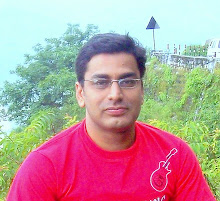Clearing the air
Thursday, September 25, 2008
 The Supreme Court’s judgment upholding the Constitution 93rd Amendment enabling the government to reserve seats for “other backward classes” in educational institutions and the subsequent Act providing for a 27 per cent quota in Centrally run institutions should clear the air in time for the admissions set to begin in June. The decision itself is no surprise and is in line with the Mandal Commission case that upheld reservations for the OBCs in government service but the reservation scheme that was to come into effect last year has been delayed by a year. The government’s plan of accommodating the reserved category by expanding the institutions rather than by cutting into the places available for the unreserved category was eminently reasonable but it still failed to halt the protests, particularly from the medical students. The exclusion of the creamy layer still remains a contentious issue and, despite repeated judicial decisions, political establishments of many States have been reluctant to even identify the creamy layer. The Supreme Court has now ruled that for Central institutions, the categories excluded from reservations would be on the basis of the 1993 order that would include: children of constitutional office holders such as the President, judges of the Supreme Court and High Courts; Class I officers; army officers of the rank of colonel and above; professionals such as lawyers, doctors, and chartered accountants; persons earning incomes of over Rs.1 lakh; and large landowners. It cannot be anybody’s case that such categories are socially and educationally backward, and any caste as a whole can be considered backward only when they are excluded.
The Supreme Court’s judgment upholding the Constitution 93rd Amendment enabling the government to reserve seats for “other backward classes” in educational institutions and the subsequent Act providing for a 27 per cent quota in Centrally run institutions should clear the air in time for the admissions set to begin in June. The decision itself is no surprise and is in line with the Mandal Commission case that upheld reservations for the OBCs in government service but the reservation scheme that was to come into effect last year has been delayed by a year. The government’s plan of accommodating the reserved category by expanding the institutions rather than by cutting into the places available for the unreserved category was eminently reasonable but it still failed to halt the protests, particularly from the medical students. The exclusion of the creamy layer still remains a contentious issue and, despite repeated judicial decisions, political establishments of many States have been reluctant to even identify the creamy layer. The Supreme Court has now ruled that for Central institutions, the categories excluded from reservations would be on the basis of the 1993 order that would include: children of constitutional office holders such as the President, judges of the Supreme Court and High Courts; Class I officers; army officers of the rank of colonel and above; professionals such as lawyers, doctors, and chartered accountants; persons earning incomes of over Rs.1 lakh; and large landowners. It cannot be anybody’s case that such categories are socially and educationally backward, and any caste as a whole can be considered backward only when they are excluded.
An earlier Supreme Court judgment had barred the government from appropriating or reserving any seats in unaided private educational institutions but the subsequent Constitution 93rd Amendment enables the state to extend reservations to them as well. This has not been done though, and without a challenge, the Supreme Court has left the question open. The exclusion of minority institutions from the ambit of reservations, however, has been upheld on the ground they are governed by a separate constitutional scheme. The uncertainty of the past year had probably slowed down the preparatory work in Central institutions for taking in larger numbers but now that the Supreme Court has given the go-ahead, they need to make sure that the new facilities are in place. Reservations would seem politically popular as shown by the unanimous passage of both the Constitution Amendment and the reservations bill, but whether the UPA Government will derive any electoral advantage from the Supreme Court’s go-ahead is unclear, given the opposition from some vocal sections to the very idea of reservation.



0 comments:
Post a Comment